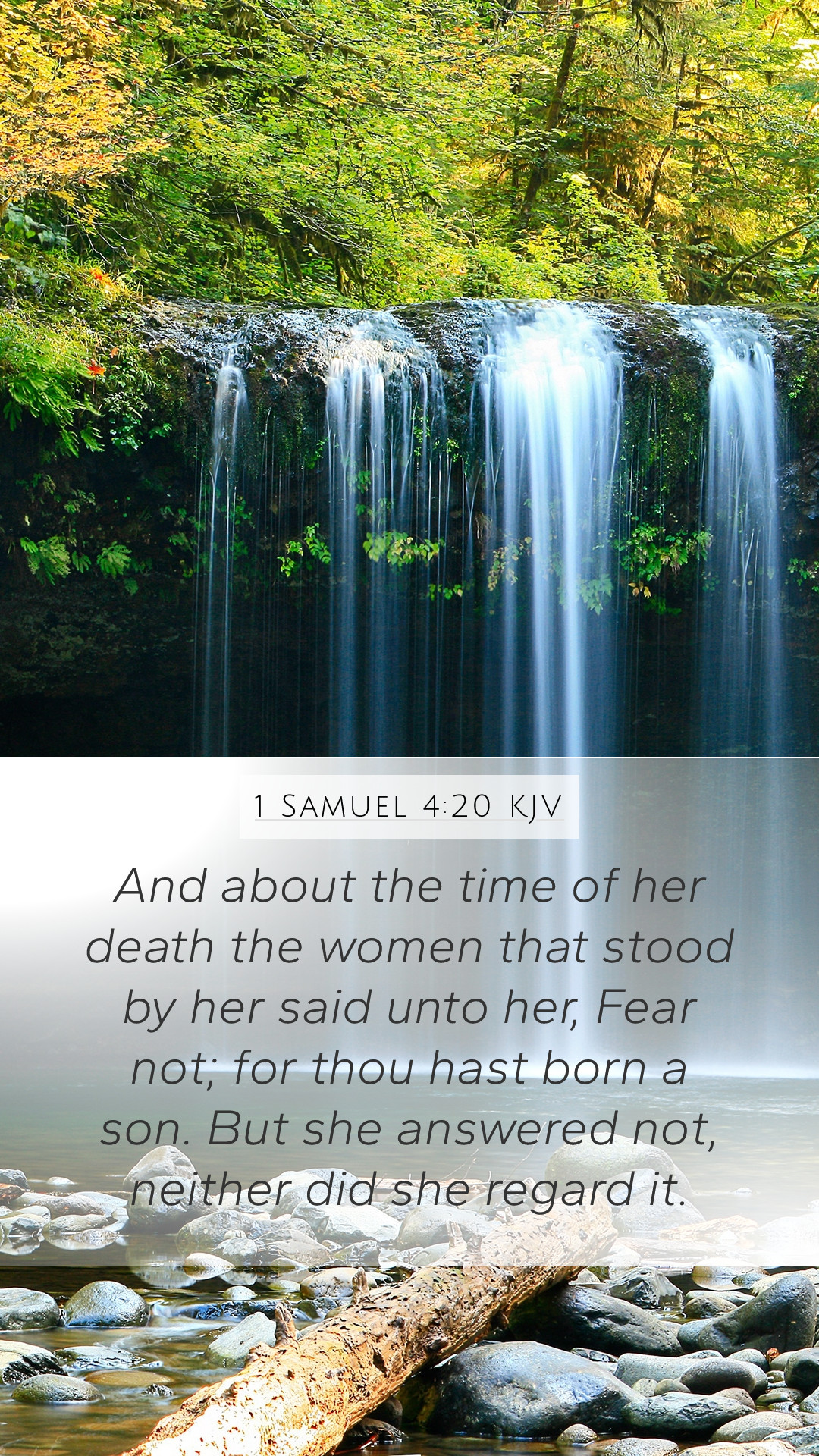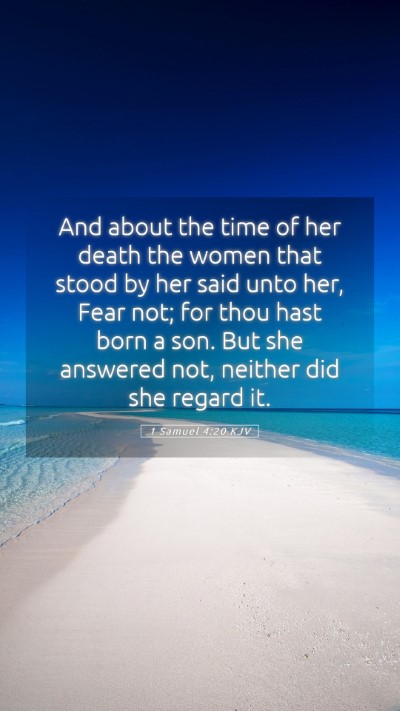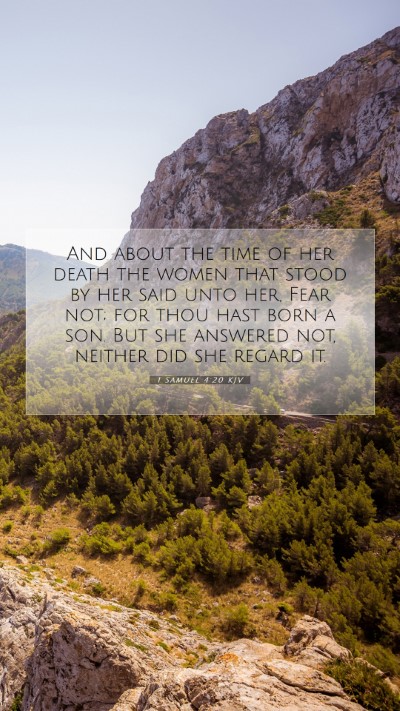Understanding 1 Samuel 4:20
Bible Verse: 1 Samuel 4:20 states: "And about the time of her death the women that stood by her said unto her, Fear not; for thou hast born a son. But she answered not, neither did she regard it."
Summary of the Verse
This verse captures a poignant moment in the life of Ichabod’s mother, who, upon hearing of her son's birth amidst the chaos and tragedy of Israel's defeat, faces overwhelming sorrow and despair. The birth symbolizes hope, yet she is so consumed by grief over her husband and the captured Ark of the Covenant that she does not respond to the joyous news.
Bible Verse Explanations
The significance of this verse lies in its representation of the duality of joy and sorrow that often exists in life. It highlights the emotional turmoil of the mother, juxtaposing the birth of her child—a symbol of new life—with her deep sense of loss and tragedy.
Bible Verse Commentary
- Matthew Henry’s Commentary: Henry explains that this event reflects the great bitterness in Israel at the time, where joy is overshadowed by tragedy. The mother’s neglect of the joy of childbirth amid her grief signifies a heart wounded by loss and the weight of national calamity.
- Albert Barnes’ Notes: Barnes illustrates the significance of this moment in the narrative of Israel. The child's birth, named Ichabod, symbolizes the glory of God departing from Israel. His commentary suggests that even good news can be eclipsed by overwhelming sorrow.
- Adam Clarke’s Commentary: Clarke draws special attention to the psychological state of the mother, showing that her silence is what speaks volumes about her state of mind. She is deeply affected by the news of the Ark's capture and the deaths of her husband and father-in-law, indicating the profound impact of loss.
In-Depth Bible Verse Analysis
In exploring the historical context, we find that this passage occurs during a time of great distress for Israel—a nation suffering defeat from the Philistines. The mention of the Ark of the Covenant being captured heightens the tragedy, as the Ark represented God’s presence among His people, thus the loss implies divine abandonment.
Lessons and Applications
The application of this verse extends beyond its historical context. It presents a reality that many face: the challenge of recognizing joy amid sorrow. How do we navigate moments when life’s blessings confront us amidst hardship? This verse encourages a conversation about the presence of grief, the complexity of human emotions, and the struggle to find hope in dire situations.
Related Bible Cross References
- 1 Samuel 4:21 - The departure of God's glory.
- 1 Samuel 10:5 - The significance of God's presence through the Ark.
- 1 Samuel 15:26 - God's rejection of Saul, illustrating Israel's spiritual decline.
- Exodus 25:22 - The role of the Ark in God’s covenant with Israel.
- Psalms 37:18 - The Lord knows the days of the upright and their inheritance shall be forever.
Conclusion
This passage teaches valuable lessons about the interplay between joy and suffering, revealing the psychological depth of despair that can accompany any new beginning. In our personal Bible study, we may apply this understanding to our spiritual journeys, seeking to embrace both the light and the dark moments as part of our faith experience.
Keywords: Bible verse meanings, Bible verse interpretations, Bible verse understanding, Bible verse explanations, Bible verse commentary, scripture analysis, biblical exegesis, Bible study insights.


